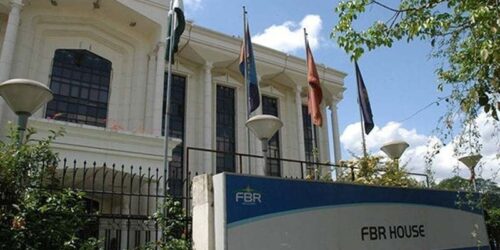A Chinese company building a 720-megawatt hydropower generation complex on the Jhelum River says it has been facing serious problems and delays in obtaining advance tax exemption orders at import stage from the Federal Board of Revenue (FBR) for the last few months.
In a letter to CPEC Authority chairman Asim Saleem Bajwa, the Karot Power Company Ltd (KPCL) complained that the FBR authorities at the Karachi Port have rejected the firm’s exemption application for its three shipments without giving any reason.
The rejection of the application without any compelling reason and justification clearly showed mal-intent on the part of the authorities, the KPCL alleged.
The exemption application was rejected on July 28. “… (since the) company is unable to get clearance in (the) absence of (the) exemption orders (it) has to bear not just the demurrage costs but also suffer a significant delay in project completion,” the letter read.
The company claimed that its income tax was exempted pursuant to clause 132 of Part-I of second schedule to the Income Tax Ordinance 2001 as it is executing the project under the Power Policy of 2002. “The company is importing equipment for the project on a regular basis… and has been applying to the FBR for exemption certificates from paying income tax on imports separately for each bill of lading.”
The KPCL is a special purpose vehicle (SPV) executing the hydropower project in the private sector on a build-own-operate-transfer (BOOT) basis with an expected concession period of approximately 35 years, which includes the construction period of five years. The main sponsor of the project is state-owned China Three Gorges South Asia Investment Ltd — an investment arm of China Three Gorges in South Asia.
This is not the first occasion that the company is facing delays in the issuance of exemption orders for its import shipments. Its application for one shipment in April this year was first ‘put on hold’ owing to non-availability of login IDs of the newly appointed officers in charge. It was later rejected by the Commissioner (Enforcement and Collection, Inland Revenue) after 36 days of its filing at the end of May, citing the latest amendment to clause 132 of Part-I of second schedule to the Income Tax Ordinance, 2001.
The order read: “The documents provided by the taxpayer (KPCL) and the report of the officers are in conflict since the setting up and actual functioning of the power generation plant is still vague and no outright evidence could be provided to its setting up or completion as such; it apparently is hit by the latest amendment to clause 132 (and), therefore, the company is not entitled to exemption under section 148 of Part-I of the second schedule of the ITO, 2001.”
The Chief Commissioner had later reversed this order after the company filed a review petition, contending that the exemption is withdrawn only for projects for which a Letter of Intent (LoI) is issued, or an agreement with federal or provincial government is signed after June 30, 2021. The amendment, according to KPCL, does not affect projects that have already signed an agreement with the government or to whom an LoI has been issued prior to June 30, 2021. In case of KPCL the agreement is already signed and financial close achieved, and the project is now at an advanced stage of installation and commissioning of machinery, the KPCL review petition argued, seeking the reversal of the earlier decision against it.
The company was, however, informed that in future the exemption orders would be granted for HS codes falling in Part-I and Part-2 of the 12th Schedule of the Ordinance. Subsequent to the Chief Commissioner’s order, KPCL was issued exemption certificates for five shipments, confirming that the confusion in interpretation of the new amendment stood resolved.
In view of the chief commissioner’s order, the KPCL requested the CPEC Authority chairman to intervene and urgently resolve the issue of delays in the release of its three latest import shipments since July 28 because of the FBR’s administrative issues, incorrect interpretation of laws and late response from officers concerned.
An FBR spokesman said Dawn’s query had been sent to the wing concerned for response. But no response was provided till the filing of this report.







